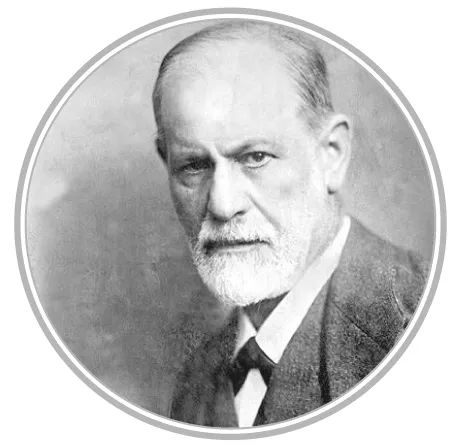If Everyone Had Montessori Schools, They Wouldn't Need Freud
Sigmund Freud told Montessori, “If everyone had your schools, they wouldn’t need me!” As a professional counselor and parenting coach, I became curious as to why Freud made such a bold statement. In considering what I know about psychology and the Montessori teaching method, I can think of two major reasons for Freud’s strong words.

First, Montessori knew that honoring the inner teacher of the child was of supreme importance. She knew that the child has his/her own inner timetable for development that is best fostered in an environment that provides the tools, but doesn’t prescribe a deadline for it’s fruition. This freedom was something that Freud believed was crucial for early childhood. Looking at the anal stage, he believed adults who showed anxiety and/or rigid behaviors, were a result of feeling pressured into potty training before feeling ready/comfortable with the change in their bodies. Therefore, both Freud and Montessori had reasons to believe that children would thrive in their emotional and intellectual lives, if trusted to start and complete the process when ready.
Secondly, Montessori knew that one of the greatest priorities of raising a young child lies in educating the mind and soul  during the first 5 years of life. Maria Montessori wrote in The Child, “We all know that the age of development is the most important period of the whole life. Moral malnutrition and intoxication of the spirit are as fatal for the soul of man as physical malnutrition is for the health of his body.” Both Freud and Montessori were unwavering on their belief that the first 5 years of life are sensitive periods for laying down the foundation of the future adult. Freud developed a psychology theory founded on the concept that your first 5 years determined your psychological strengths and weaknesses for the rest of your life. Similarly Montessori spoke strongly to the world of educators to emphasize that education must not begin at age 6, as it does in many cultures, because so many sensitive periods occur between 0 and 5.
during the first 5 years of life. Maria Montessori wrote in The Child, “We all know that the age of development is the most important period of the whole life. Moral malnutrition and intoxication of the spirit are as fatal for the soul of man as physical malnutrition is for the health of his body.” Both Freud and Montessori were unwavering on their belief that the first 5 years of life are sensitive periods for laying down the foundation of the future adult. Freud developed a psychology theory founded on the concept that your first 5 years determined your psychological strengths and weaknesses for the rest of your life. Similarly Montessori spoke strongly to the world of educators to emphasize that education must not begin at age 6, as it does in many cultures, because so many sensitive periods occur between 0 and 5.

Montessori’s first children’s school (Casa DeiBambini) offered a unique approach to education. She created a prepared environment, with items that would essentially become self-educating tools and then observed when children gravitated to certain lessons. As a result, she discovered a wealth of developmental capacity in children under 5. It was the children who taught her that 3 to 4 year olds have great potential for and interest in mathematics, for instance. So, the attention we now give to children’s development from age 0-5 is largely thanks to both Montessori (regarding education) and Freud (regarding the psyche).
If you’d like to offer your child an education that is attuned to the child’s needs, as well as focused on giving great attention to the most crucial time period of life, I strongly recommend the Age of Montessori Teacher Training. I have just completed the informational version of the course (not-for-credit) in order to offer Montessori learning to my own child at-home. I am thrilled with the quality and presentation of the content, and feel very confident that I might be offering my child the best educational and psychological start to life.




















